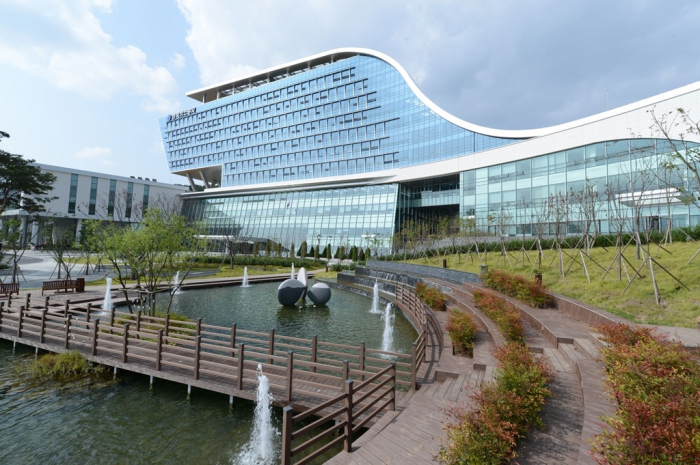The state-run Korea Gas Corp. is set to raise some 1 trillion won ($745 million) by issuing hybrid securities to lower its debt ratio although the domestic developer’s default of a Legoland theme park and market woes linked with a small insurer’s buyback of dollar perpetual bonds soured investor sentiment.
KOGAS is in process of selecting managers for the issuance, investment bank industry sources on Friday. The state company aims to sell the perpetual bond next month with a nominal maturity of 30 years and an option to call back the note after five years of issuance.
Bond market participants, however, doubted if KOGAS could attract enough investors for the securities. Investors usually do not have money for fresh investment around year-end and refrain from taking risks ahead of book closing.
Investor sentiment on hybrid securities was also chilled after
Heungkuk Life Insurance Co. had planned not to exercise an option to call back $500 million in dollar perpetual notes although
it later overturned the decision.The domestic money market was rattled by
the default on municipal government-guaranteed debt worth 205 billion won for Legoland Korea in Gangwon Province.TO LOWER DEBT RATIOKOGAS has been working to improve its financial structure since the government selected 14 state-run companies including KOGAS and Korea Electric Power Corp., whose debt ratios exceeded 200% or whose financial conditions do not meet standards, as organizations with poor financial structures in late June.
The state-run energy importer suffered from surging costs with liquefied natural gas prices jumping by more than five times in the last one year. Its debt ratio already soared to 478.5% in the third quarter from 378.9% in 2021. The ratio is expected to further rise to nearly 500% by year-end.
The hybrid securities are expected to reduce its debt ratio by more than 40 percentage points, KOGAS said.
The company is discussing the sale of hybrid securities with the Board of Audit and Inspection (BAI) as it withdrew a plan to sell 750 billion won in a perpetual bond in 2014 due to the opposition of the government authority.
At that time, the BAI asked KOGAS not to issue the bond, saying the company tried to lower a nominal debt ratio only through the note that deteriorates its financial structures with higher costs.
The auditor also said a perpetual bond’s interest rates are usually higher as its credit ratings are lower than normal corporate bonds as it is a subordinated debt In addition, a perpetual bond is an actual liability given a call option and a step-up feature, which increases coupon payments when the issuer doesn't repay them, the authority said.
Only three state-run companies have issued such bonds so far. Korea Western Power Co. and Korea South-East Power Co. sold 100 billion won and 400 billion won in perpetual bonds, respectively, in 2012, while Korea District Heating issued 250 billion won worth of such a bond in 2020.
KOGAS may have to drop the plan again if the BAI vetoes the perpetual bond sale, some industry sources speculated.
“We are working on internal processes for the issuance and we have yet to make a decision,” said a KOGAS official.
Write to Lim Do-Won and So-Hyeon Kim at
van7691@hankyung.comJongwoo Cheon edited this article.





